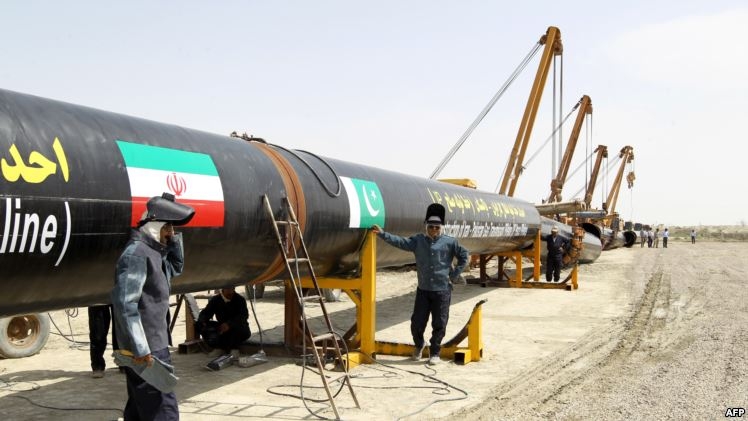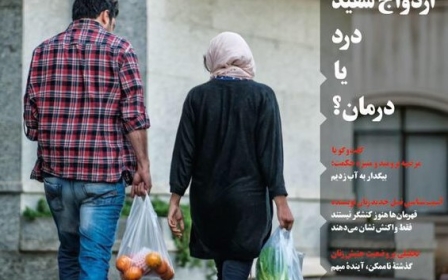Iran oil and gas fair opens amid hopes over sanctions lifting

Iran’s 20th annual oil and gas fair opens in Tehran on Wednesday, amid hopes that a nuclear deal could mean a major turnaround for the country’s stifled economy.
The four-day event will see officials outlining future plans for the industry, one of the cornerstones of Iran’s economy.
Iran’s Ministry of Petroleum has said that 600 foreign companies are among the 1,800 exhibitors, with British, French, Russian and Chinese businesses reportedly taking part.
All in all, some 30 countries are to be represented – however, a spokesperson has said that no delegates from the US or from regional foe Saudi Arabia will be attending.
However, an Iranian official said that a US delegation would visit Tehran "in the coming days".
The keynote address will come from Oil Minister Bijan Zanganeh, who is keen to boost Iran’s ailing economy by attracting international energy giants back to the country.
Iran is classed as an “energy superpower,” sitting atop the world’s fourth largest oil reserves and the second largest gas deposits.
However, a complex spiderweb of Western-imposed sanctions has seen oil exports fall by half since 2012.
Sanctions imposed in 2008 by the EU, which previously accounted for 20 percent of Iran’s oil exports, banned the import, transport and purchase of both crude oil and gas.
Iran currently exports just 100 million barrels a day, just over double the output of crisis-hit Libya.
With Iran edging closer to a nuclear deal with Western powers, though, many business and political leaders are optimistic about the prospect of freeing up the oil trade.
Oil Minister Zanganeh has held high-level meetings with Western oil executives in recent months, including attending a conference of OPEC [Organisation of the Petroleum Exporting Countries] in Vienna last month.
Though a nuclear deal has not yet been inked, with a final draft agreement scheduled for 30 June, Iran is already attempting to make legal changes that will lure foreign investment back into the country.
Current Iranian law requires foreign companies to partner with local firms. However, authorities have already circulated new draft contracts to international oil firms, according to diplomatic sources who spoke to Reuters, offering a favourable rate of return for foreign investors.
Iran hopes that such contracts would allow it to reinvigorate waning oil and gas fields, like the vast South Pars gas field shared with Qatar, as well as develop new ones.
However, with crude oil prices yet to recover after hitting a six-year low in March, business leaders remain wary about sinking large-scale investments into the new market.
Despite this, there is hope that a lifting of sanctions could mean foreign capital will flood into Iran, not least in exchange for the country’s second-biggest export after oil: pistachios.
The crop is worth around $1.3 bn to the Iranian economy every year – an effective ban on imports to the US, in place since 2010, could be lifted in the event of the sanctions being cancelled, leading to fears of a worldwide price slump as the market is flooded with the luxury product.
New MEE newsletter: Jerusalem Dispatch
Sign up to get the latest insights and analysis on Israel-Palestine, alongside Turkey Unpacked and other MEE newsletters
Middle East Eye delivers independent and unrivalled coverage and analysis of the Middle East, North Africa and beyond. To learn more about republishing this content and the associated fees, please fill out this form. More about MEE can be found here.




